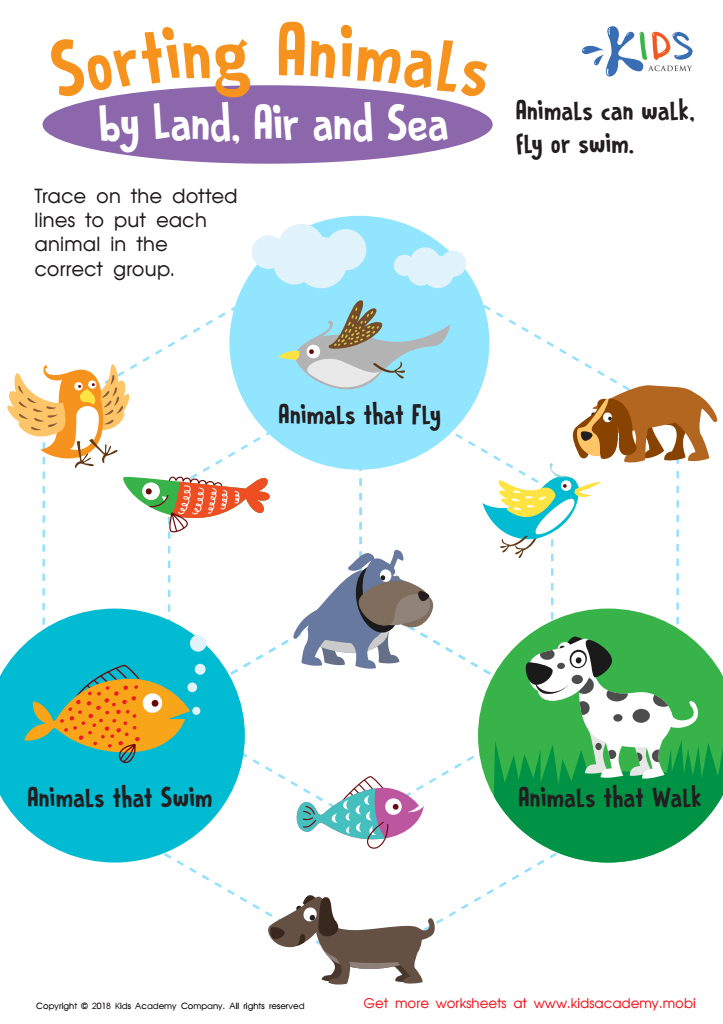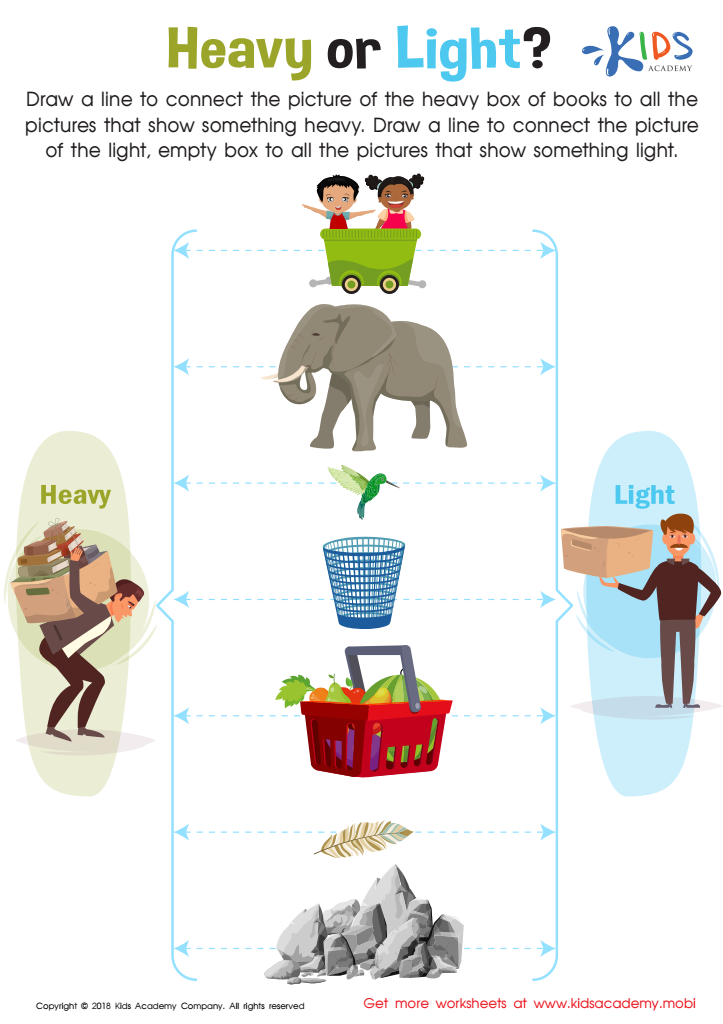Enhancing observation skills Normal Math Worksheets for 5-Year-Olds
3 filtered results
-
From - To
Enhance your child's observation skills with our engaging Normal Math Worksheets designed specifically for 5-year-olds! These fun, printable activities help young learners sharpen their visual perception and critical thinking abilities while exploring essential math concepts. Kids build observational skills by identifying patterns, comparing quantities, and recognizing shapes, all through interactive exercises that promote active learning. Our worksheets are aligned with developmental milestones, ensuring that your child experiences both educational growth and enjoyment. Perfect for home or classroom use, these resources will cultivate a love for learning in your little one while preparing them for future mathematical success. Discover the joy of observation today!


Pollinator Positions Worksheet


Sorting Animals by Land, Air and Sea Worksheet


Heavy or Light? Worksheet
Enhancing observation skills in 5-year-olds plays a crucial role in their mathematical development and overall learning. At this age, children are naturally curious and eager to explore their surroundings, making it the perfect time for parents and teachers to foster these skills. Observational abilities enable children to recognize patterns, classify objects, and make connections between concepts, all fundamental aspects of learning mathematics.
When children develop strong observation skills, they become better equipped to ask questions and seek explanations, enhancing their critical thinking and problem-solving capabilities. Encouraging them to notice details in everyday situations—such as counting fruits in a grocery store or comparing sizes of toys—can be integrated into math activities, making learning more enjoyable and relevant.
Moreover, improved observation skills empower children to think independently and build their confidence in tackling math problems. They gain the ability to articulate their thoughts, which fosters communication skills and a deeper understanding of mathematical concepts. By prioritizing the enhancement of observation skills, parents and teachers can lay the groundwork for effective learning strategies, boosting children’s enthusiasm for math and promoting lifelong engagement with the subject. Ultimately, such foundational skills will benefit children not just academically, but socially and emotionally as well.
 Assign to My Students
Assign to My Students



















